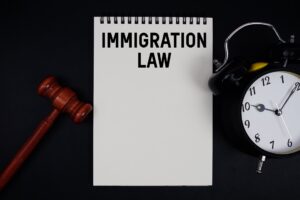E-2 treaty investor visas are available to foreign nationals who are citizens of countries that maintain a treaty with the United States. Because Canada is one of those countries, Canadian citizens are eligible to establish or invest in a business in the U.S., provided they commit a substantial amount of funds to the endeavor and meet other requirements. Below is an overview of the requirements and process, and some investment guidance for Canadian applicants seeking an E-2 visa.
Requirements
Like nationals from all treaty countries, Canadian citizens must meet specific requirements to qualify for an E-2 visa. These requirements were established by the U.S. government under treaties of commerce and navigation, and they are enforced by U.S. Citizenship and Immigration Services (USCIS) and the U.S. Department of State. The requirements Canadian applicants must meet include the following:
- Proof of Canadian citizenship
- Proof that the investment is substantial and not marginal (not solely a means of making a living)
- Proof that the enterprise is real, active, and producing goods or services, including client lists, contracts, receipts, website printouts, and photographs of the physical business
- Company ownership and controlling interest documents, including business incorporation and ownership documents, stock certificates, etc.
- Proof that you will develop and direct the enterprise or that you will be employed in an executive/supervisory position or that you have essential skills.
- Proof of the investment and source of funds, including bank statements showing transfers.
- Proof of operating costs, including receipts, purchase orders, invoices, advertising fees, etc.
- Proof showing ownership of at least 50 percent of the business or proof of operational control. T
- Proof that the funds are from legal sources
Process
Canadian nationals must follow the same basic process as other treaty countries when applying for an E-2 investor visa. The main steps are as follows:
Step 1 – Invest in a U.S. Business
Determine whether you prefer to launch a business in the U.S. or invest in an existing business. Next, launch or purchase a U.S. business and invest a substantial amount into that business. More will be explained below regarding a “substantial” investment. If your goal is to set up a business, it will require creating a detailed business plan that includes financial forecasts, market research, hiring goals, etc.
Step 2 – Gather Documents
Before submitting your initial documents to the U.S. Consulate, be sure to confirm that you have included everything required for processing the E-2 visa. Even one missing document can delay the entire process. Once complete, the full E-2 supporting document package must be emailed to EVisaCanada@state.gov. The U.S. consulate in Canada has specified that it will only accept a single submission package of no more than 50 pages, in PDF format, and with a file size limit of 20MB. The 50-page limit does not include the DS-160, DS-156E, or G-28 forms. Also note that the consulate will not accept zip files or shared online folders. Below is a list of the type of documents that must be included in E-2 packages:
Civil Documents:
- Proof of Canadian citizenship (Birth Certificate or Naturalization Certificate) / Marriage certificate / civil documents for spouse and dependent children under age 21 (if applicable)
Proof of Business Registration, Licensing, and Ownership:
- Shares, stock certificates, business license, etc.
Proof of Estimated Start-Up Costs for New Business:
- Market surveys, trade association statistics, Chamber of Commerce estimates
Proof of Purchase Price for Existing Business Enterprise:
- Tax valuation, market appraisal, etc.
Proof of the Investment – New Business:
- Inventory lists and shipment invoices / equipment purchases / receipts for inventory purchases / wire transfer receipts / canceled checks and receipts for expenditures / rent payment / lease agreement / bank account statements
Proof of the Investment – Existing Business:
- Escrow documents / purchase price and sales agreement documents / loan and mortgage documents / financial reports / tax returns / lease agreement / business account statements
Proof That the Enterprise Is Real, Active, and Producing Goods or Services
- Client lists / contracts / receipts / website printouts / photographs of the physical business
Proof of Source of Funds:
- Transactions related to sale of property or business and proof of ownership
- Bank statements showing funds and related transactions, voided investment certificates, internal bank vouchers
- Audited financial statement and annual report
- Net worth statement from professional accountant
Proof That the Investment Is Substantial and Not Marginal
- Business tax returns / payroll documents / financial statements / annual reports / financial projections
Company Ownership and Controlling Interest Documents
- Business incorporation and ownership documents / stock certificates
Proof of Operating Costs
- Receipts/purchase orders/invoices/advertising fees
Proof of Executive/Managerial/Supervisory/Essential Skills
- Detailed letter from the business enterprise describing the E-2 applicant’s credentials, U.S. executive/supervisory or essential skills role / degrees and transcripts / training certificates
Step 3 – Complete Forms
- Visit Nonimmigrant Visa – Instructions Page to prepare Form DS-160 (Nonimmigrant Visa Application) for the principal applicant and each accompanying dependent, and attach 2×2 passport-style photos taken within the last six months.
- Complete Form DS-156E (Nonimmigrant Treaty Trader/Investor Application): https://eforms.state.gov/Forms/ds156_e.pdf
Step 4 – Pay Visa Fee
- Pay the visa fee and follow the instructions to schedule your consular appointment
Step 5 – Attend Your Consular Appointment
Bring along original civil documents and a full printed copy of the E-2 submission package separated into tabbed sections, comprised of the following:
- Form DS-160 confirmation page for each E-2 applicant
- Form DS-156E for the principal applicant
- Passport-style photos for each applicant (if not already uploaded with Form DS-160)
- Cover letter summarizing the E-2 visa requirements and the principal applicant’s specific qualifications
- Table of Contents or Index of exhibits.
- Copies of civil documents for principal applicant and each dependent
- Supporting documentation
Investment Guidance
For E-2 investments, you must demonstrate that the funds are both substantial and actively invested in a U.S. business in a manner that places them “at risk.” While there is no fixed minimum investment amount, the investment must still qualify as substantial. Typically, this ranges between USD $85,000 and $100,000, though the appropriate investment amount mainly depends on what is customary for the type of business being established.
To prove that the funds are at risk, applicants must show that the money cannot be easily revoked at any time, but that it has been invested in a way that makes it susceptible to business loss. The best way to prove that the funds are at risk is to provide documents such as the following:
Proof of money spent on business expenses:
- Invoices / bank statements / canceled checks
Evidence of fund transfers between banks:
- Wire transfer receipts
Business start-up documents:
- Lease
- Business insurance purchase
- Licenses
- Permits
- Contracts
- Purchase or escrow agreements
Loan documents:
- Loan documents secured from personal assets
Investment spreadsheets:
- Documents showing use of investment funds
Applying for an E-2 treaty investor visa can be a complex process for foreign nationals, including Canadians. Working with an experienced immigration attorney can help you to understand the requirements and avoid the pitfalls that can lead to a denial. At U.S. Immigration Law Counsel, our team of experts is ready and able to guide you through the full E-2 process for Canadians. Contact us today at U.S. Immigration Law Counsel or 800-666-4996 to speak with an immigration attorney.




